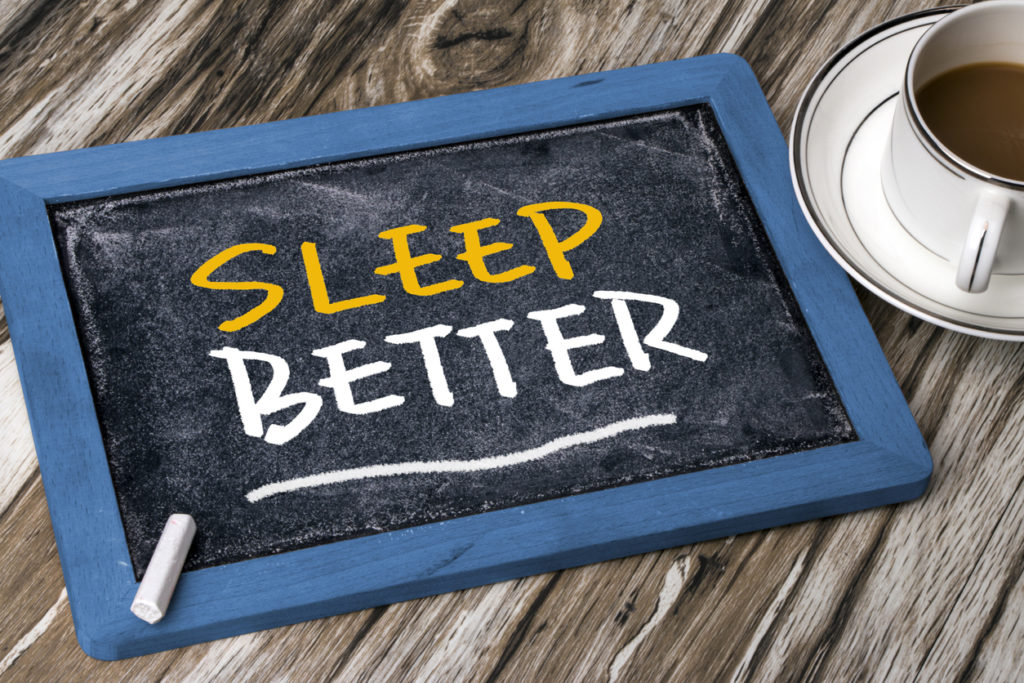Insomnia Treatment in Madison, Hamden and New London, CT

At Waterstone Sleep & Neuroscience Associates, a leading sleep center in Connecticut, we diagnose and treat a wide range of sleep disorders, including acute and chronic insomnia. Learn more about our insomnia treatments below, or schedule an appointment to sleep better and live better today.
What is Insomnia?
Insomnia is a sleep disorder characterized by the inability to fall asleep or stay asleep. Insomnia is a common condition and Gallop polls show that, at any given time, more than 49% of the population suffers from some type of insomnia. There are two forms of insomnia, acute (short-term) and chronic (long-term).
Acute Insomnia
Acute insomnia occurs for a short length of time, often due to extreme stress or anxiety. This form of insomnia is common and can last anywhere from one day to several weeks.
Chronic Insomnia
Chronic insomnia occurs for three months or longer. This form of insomnia may be a secondary issue or the result of another condition. It is sometimes referred to as “secondary insomnia” and can be a by-product of certain medications, other sleep disorders, medical conditions, or substances.
The symptoms of Insomnia
 The following symptoms may indicate insomnia:
The following symptoms may indicate insomnia:
- Extreme difficulty falling asleep at night
- Waking up in the middle of the night or too early in the morning
- Difficulty focusing or completing tasks as usual
- Headaches (especially tension headaches)
- Ongoing worrying (especially about sleep)
- Excessive tiredness during the day
- Waking up feeling unrested or groggy
What causes insomnia?
Insomnia can be caused by a wide range of factors, including medical conditions, psychiatric conditions, lifestyle factors, and substances. Some insomnia causes are:
- Medical conditions, such as allergies, back pain, and arthritis
- Underlying sleep disorders, such as restless legs syndrome and sleep apnea
- Depression
- Anxiety
- Napping during the day
- Non-traditional working hours
- Using devices late at night
- Alcohol
- Caffeine
- Nicotine
The potential risk factors for Insomnia
If you have one or more of the following conditions, you may be more likely to suffer from insomnia:
- Mental health disorders
- Family history of sleep disorders
- Stress at work or home
- Inconsistent sleep habits
- Constant change in work or sleep schedule
- Frequent travel across multiple time zones
How is insomnia diagnosed?
Insomnia can be diagnosed by a sleep specialist like one of our doctors. Making a diagnosis typically begins by asking a number of questions about your past and current sleep patterns, as well as conducting a physical exam to look for signs of underlying conditions. In some cases, a sleep study may be recommended, which can be completed at home or in a sleep lab.
How is insomnia treated?
 Acute and chronic insomnia treatment may include the following:
Acute and chronic insomnia treatment may include the following:
- Lifestyle modifications, which may consist of losing weight, quitting smoking, exercising regularly, avoiding alcohol, and other changes based on an individual’s needs.
- Cognitive behavioral therapy for insomnia (CBTi), which may involve a variety of treatment strategies designed to help patients initiate and maintain sleep. This may also include seeing a behavioral sleep psychologist.
- Medical management, which may consist of prescribing FDA-approved medications for treatment of insomnia.
Schedule a client consultation
If you believe you may be suffering from insomnia, it is important to see a doctor who specializes in sleep medicine in order to properly diagnose and treat your condition. Call 203-826-1163 today, or schedule an appointment using this form.








